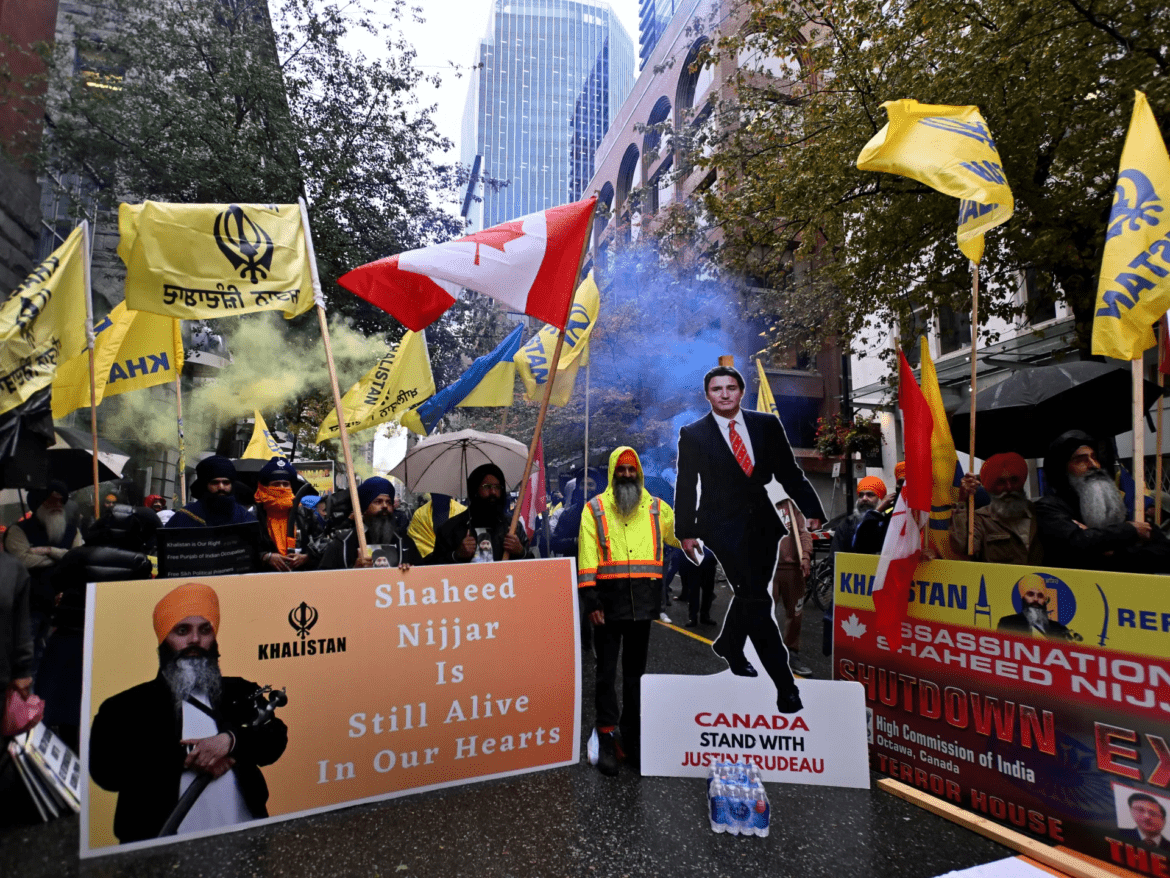AI Generated Summary
- In a stern warning to the Indian diaspora, India’s recently recalled High Commissioner Sanjay Kumar Verma has urged Indian students in Canada to stay vigilant against attempts by Khalistani terrorists and extremists to radicalize them.
- “Some students are persuaded to hold protests outside the Indian diplomatic buildings in Canada and post their photographs and videos insulting the Indian Flag and raising anti-India slogans on social media platforms,” Verma revealed.
- As both nations navigate this diplomatic impasse, the focus remains on ensuring the protection and support of Indian students pursuing education in Canada, while addressing the underlying issues of radicalization and extremism.
In a stern warning to the Indian diaspora, India’s recently recalled High Commissioner Sanjay Kumar Verma has urged Indian students in Canada to stay vigilant against attempts by Khalistani terrorists and extremists to radicalize them. Verma made these remarks during an exclusive interview, highlighting growing concerns over the influence of extremist groups within the student community.
EXCLUSIVE | VIDEO: Here's what Indian High Commissioner Sanjay Verma told @PTI_News when asked about 'concerned' parents who send their wards to Canada for higher education.
— Press Trust of India (@PTI_News) October 24, 2024
"I would like to digress a bit and say, our, our children getting there what they had dreamt of. If I can… pic.twitter.com/cexvA0kMem
Last Thursday, India took the significant diplomatic step of recalling High Commissioner Verma along with other targeted diplomats and officials from Canada. This action followed escalating tensions between New Delhi and Ottawa, primarily driven by Canadian Prime Minister Justin Trudeau’s persistent stance regarding the investigation into the murder of Khalistani terrorist Hardeep Singh Nijjar. The Indian government dismissed Ottawa’s accusations, labeling them as “preposterous imputations.”
Verma, a veteran diplomat with a 36-year-long distinguished career, emphasized the threats posed by Khalistani extremists to the broader Indian community in Canada. “At this time in Canada, there is a threat from Khalistani terrorists and extremists to the larger Indian community, including outreach to students,” he stated. He explained that economic hardships have made students vulnerable, as extremists offer financial incentives and basic necessities to manipulate and recruit them for their agendas.
The High Commissioner detailed alarming tactics used by these groups, including organizing protests outside Indian diplomatic missions and encouraging students to display anti-India sentiments on social media. “Some students are persuaded to hold protests outside the Indian diplomatic buildings in Canada and post their photographs and videos insulting the Indian Flag and raising anti-India slogans on social media platforms,” Verma revealed. These actions not only tarnish India’s image but also create a pathway for extremists to coerce students into seeking asylum under false pretenses, fearing repercussions if they return to India.
EXCLUSIVE | VIDEO: Here's what Indian High Commissioner Sanjay Verma told @PTI_News when asked about India's allegation that Canadian PM Justin Trudeau is 'promoting terrorism'.
— Press Trust of India (@PTI_News) October 24, 2024
"Encouragement could be both ways, one is actively telling them to do something, and second is to you… pic.twitter.com/sIbqpquYdt
Verma also shed light on the lack of cooperation from Canadian authorities regarding the investigation into Nijjar’s murder. “Not a shred of evidence has been shared with me by the Canadian authorities regarding the so-called ongoing investigation,” he asserted. He accused Canada of neglecting India’s efforts to combat radical elements, stating that despite providing detailed evidence and extradition requests for 26 radical individuals, no significant action has been taken. “One law applies to you and another law applies to me. That doesn’t work in the world anymore,” he remarked, criticizing what he perceives as double standards in international law enforcement.
In his heartfelt appeal, Verma urged parents of Indian students in Canada to maintain regular communication with their children. “Please talk to them regularly and try to understand their situation, and to guide them away from unwise choices,” he advised. His call comes amid rising concerns about the safety and well-being of Indian youth abroad, who are seen as vulnerable targets for extremist recruitment.
This incident underscores the fragile state of Indo-Canadian relations and the broader challenges of combating transnational terrorism. As both nations navigate this diplomatic impasse, the focus remains on ensuring the protection and support of Indian students pursuing education in Canada, while addressing the underlying issues of radicalization and extremism.
The recall of High Commissioner Verma marks a critical juncture in the ongoing dispute, with New Delhi standing firm against what it perceives as unjustified Canadian hostility.




